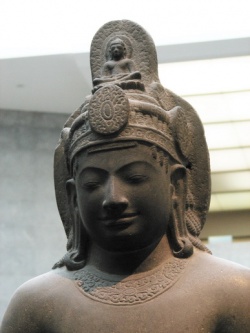Four Immeasurables
1. Compassion
This means that we think that we want to free all sentient beings from real suffering. We call this Compassion. You can’t count all sentient beings; you can count your friends, your family on one hand, but you need to think of all sentient beings, even your enemies. Actually a Dzogchen practitioner doesn’t have any enemies, but think that you liberate everyone. That is Great Compassion.
2. Love
This means that you think that all sentient beings attain real happiness. If all sentient beings are free from suffering then that is real happiness. Don’t just think this for your friends or family, but for all sentient beings.
3. Joy
Then (you) feel glad (about that).
4. Equanimity
This means that you do it for all sentient beings – friend, family or strangers. This is Great Equanimity.
This is meditation on the Four Immeasurable.
You also need strong intention, strong intention to achieve Buddhahood for all sentient beings. That means you think that when you achieve Enlightenment, you will do something to free sentient beings from Samsara and suffering. That is strong intention.
Meditating on compassion is very helpful to purify anger and the Five Poisons as then Great Compassion comes and you have no more anger. If you have an angry mind, you can’t practice patience, so you need to try to purify and meditate on Compassion. That is how to meditate on Compassion.
You can do a practice with your breath: when you inhale, think that you are picking up all sentient beings’ negativity. Then exhale and send love to all sentient beings. That is part of Compassion.
Meditation: Visualize yourself as Buddha or Taphiritsa and send five lights to all sentient beings and imagine that all their negativity and illnesses are purified and that they become as gods and goddesses. Four Immeasurable
